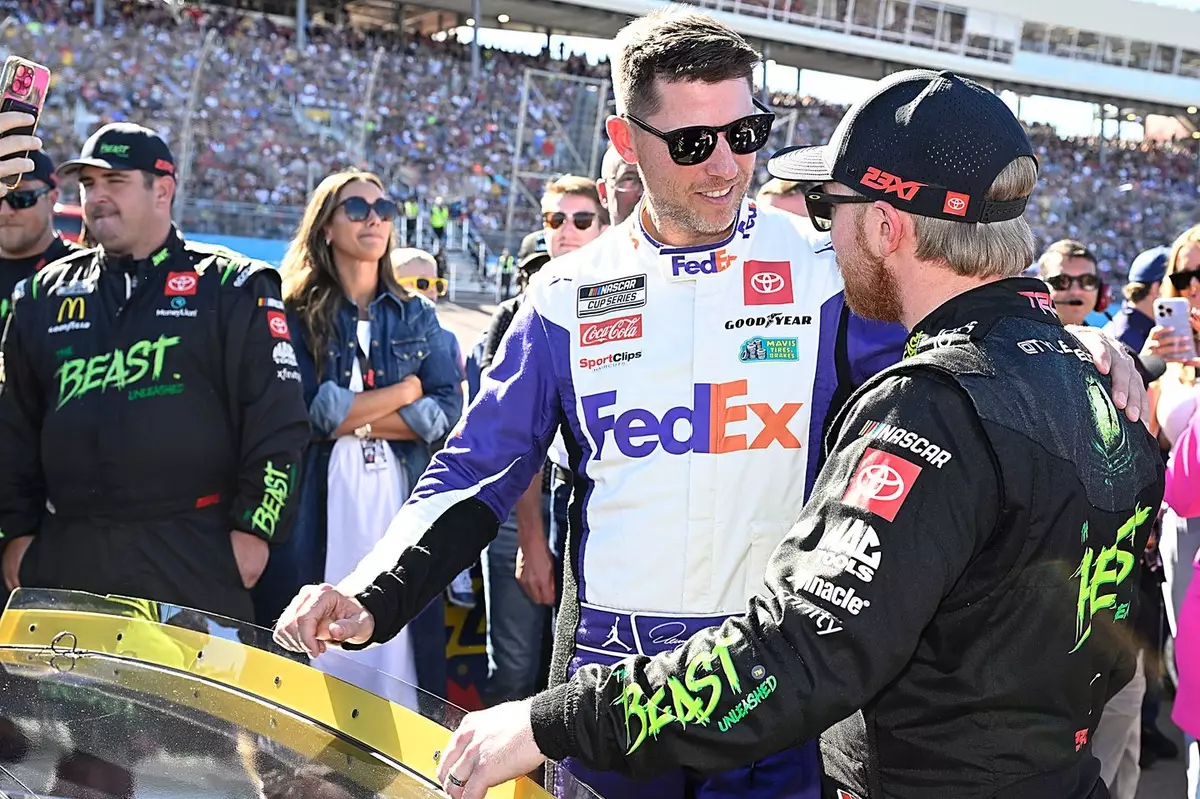In a significant development for NASCAR and its associated teams, a federal court has granted a preliminary injunction to 23XI Racing and Front Row Motorsports (FRM), allowing them to retain their charters for the 2025 season amidst an ongoing antitrust lawsuit against the governing body and the France family. This ruling has opened the door for deeper discussions about competition, monopolistic control, and the future operations of racing teams within NASCAR.
The ruling effectively suspends certain sections of the 2025 Charter Agreement that were at the center of the dispute, particularly a release clause that aims to prevent teams from pursuing antitrust claims after signing. The legal framework for obtaining a preliminary injunction is stringent, requiring teams to prove several essential conditions: that their case likely has merit; that they would suffer irreparable harm without the injunction; that the balance of equities favors them; and that the injunction serves the public interest. Initially, both teams experienced a setback on November 8 when Judge Frank D. Whitney denied their motion, citing insufficient evidence of potential harm.
However, a shift in strategy allowed 23XI and FRM to refile for the injunction under a new premise. Instead of requesting the charters unconditionally, they sought to compete under the existing framework while excluding the problematic release clause. This adaptation reflected a keen understanding of the legal system’s workings and their readiness to position themselves strategically for a favorable outcome. The transition to Judge Kenneth D. Bell may also indicate a shift in the case dynamics.
One of the most profound claims emerging from this court ruling is the court’s acknowledgment of NASCAR’s monopoly power within the premier stock car racing market in the United States. The judgment emphasized that NASCAR entirely controls the entry and operation of race teams at the highest level, effectively possessing a 100% market share. This finding is not merely a legal victory for the teams but also adds critical weight to their ongoing antitrust allegations against NASCAR.
The court’s assertion that other racing leagues, such as Formula 1 and IndyCar, do not serve as effective substitutes further underlines the unique position NASCAR holds within the motorsport landscape. This distinction asserts that the economic and operational model of NASCAR is intrinsically linked to the sport’s structure and the teams that participate in it. The implications of this ruling could usher in more scrutiny on NASCAR’s business practices moving forward, potentially reshaping the competitive landscape for years to come.
With the injunction in place, both 23XI and FRM can move ahead with their organizational expansions, such as completing a purchase of additional charters from the now-defunct Stewart-Haas Racing. The introduction of Riley Herbst into the mix for 23XI Racing and the expected expansion of FRM — with Zane Smith as a rumored candidate for a third seat — highlights a tangible increase in team competitiveness and diversity.
However, the ruling also casts a shadow over driver contracts. The potential threat faced by 23XI’s Tyler Reddick, whose contract may be voided should the team compete as an “open” team, speaks volumes about the precarious nature of employment and operational stability in this environment. Numerous drivers under the banners of 23XI and FRM are reportedly feeling the strain of uncertainty surrounding their contracts, emphasizing the pressing need for clarity and security within NASCAR’s framework.
Looking Ahead: NASCAR’s Response and Future Developments
As the dust settles on this ruling, it remains to be seen how NASCAR will respond. The governing body retains the option to appeal the decision, and such a move could potentially lead to a legal battle preceding the 2025 season. The stakes are high for all involved; both the teams and NASCAR are at a crossroads that could alter the trajectory of stock car racing.
The recent court ruling for 23XI Racing and Front Row Motorsports is a pivotal moment in the ongoing tension between NASCAR and its teams. With implications stretching from legal maneuvers to fundamental market dynamics, this case not only highlights the delicate balance of power but also raises critical questions about the future of competitive racing in America. As this saga unfolds, all eyes will be on how NASCAR adapts and what impact this ruling has on the landscape of motorsport.


Leave a Reply